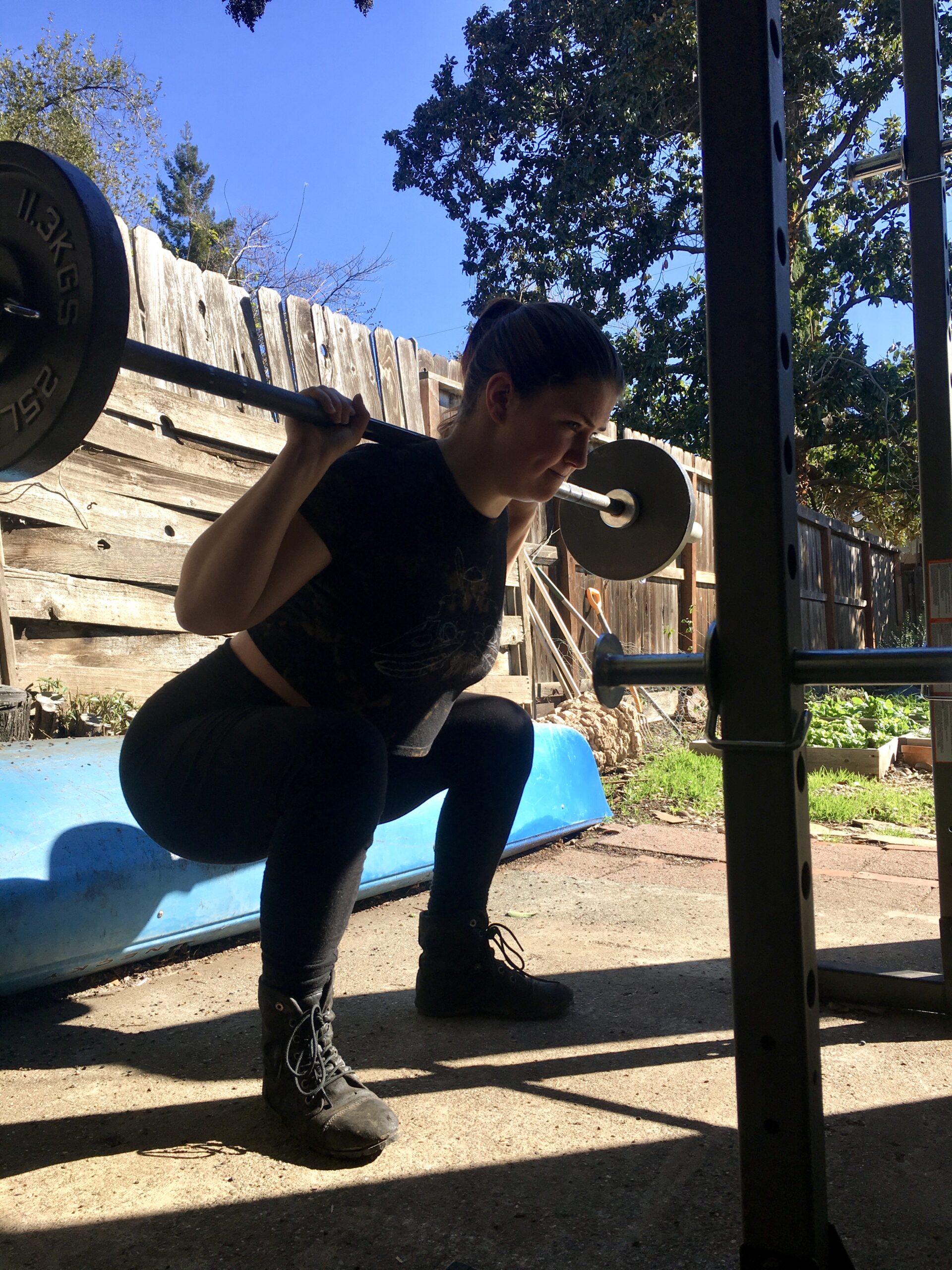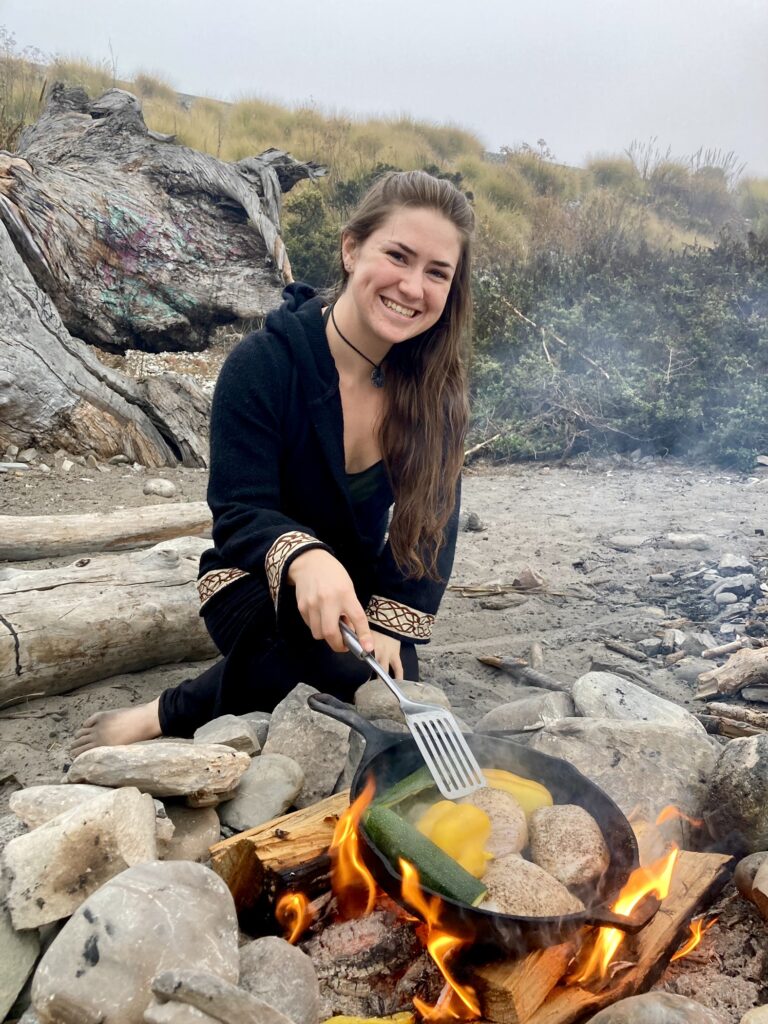Overcome Your Gut + Digestive Issues With Ancestral Nutrition
10 Nutrition Tips For Athletes

(Me Squatting In My Backyard Gym)
Proper nutrition allows you to maximize your performance, muscle growth, recovery, and health. Ensuring that you get the most return for your hard work training. Below are 10 nutrition tips designed to do just that.
1) Consume Collagen:
Collagen helps repair and build joints, tendons, bones, and ligaments. It’s great for preventing and recovering from injury. Good sources of collagen are bone broth, bone marrow, meat cooked on the bone, and collagen supplements.
2) Get Your EPA And DHA Omega-3s:
Omega-3s decrease inflammation in the body and promote recovery and overall health. Good sources include fatty fish (like salmon, mackerel, herring, sardines, anchovies), oysters, and salmon roe. Plant sources like flax and chia have ALA which needs to be converted into DHA and EPA. According to Chris Kresser, conversion rates are around a fraction of a percent to a few percent. Therefore I recommend animal sources. I also don’t recommend fish oil or flax oil supplements because these oils are very unstable and oxidize easily.
3) Eat Lots Of Animal Protein:
Animal sources of protein are more bioavailable and have a complete amino acid profile with the amino acids in the correct proportion for protein synthesis. The result is more muscle built and less muscle broken down. Meat also has creatine which is necessary for the creatine phosphate system, a system that produces energy for the first 10 seconds of intense movements such as powerlifting and sprinting. Red meat, poultry, fish, seafood, eggs, and dairy are all good sources.
4) Get Enough Cholesterol:
Cholesterol is the precursor to your sex hormones (that means testosterone!) Without adequate cholesterol, you can’t make enough testosterone and consequently have a harder time building muscle. This isn’t just for men, although women need less, testosterone is still important for woman who want to build muscle. Besides cholesterol makes female sex hormones too, so your body will balance things accordingly. You can get cholesterol from animal fats such as butter, tallow, lard, fatty cuts of meat, eggs, and dairy. Worried about consuming cholesterol, check out my article: “Lies You Are Told About Fat By Mainstream Nutrition.”
5) Eat Organ Meats Or An Organ Supplement:
Organ meats are the most nutrient dense foods there are. Different organs are high in different nutrients so I recommend consuming a variety of organs or a mixed organ supplement like the one from Ancestral Supplements. Organs serve as natures multivitamin. Organs help ensure you get enough of all the vitamins and minerals you need. Good organ meats to consume include liver, heart, kidneys, brain, sweetbreads, tripe, gizzards, and spleen. More info on organs in this article.
6) Get Adequate Calories:
While decreasing Calories to lose fat has its place, many people (especially woman) become chronic dieters. Constantly placing themselves in a Caloric deficit to lose weight. This leads to a decrease in metabolism, low energy, makes it harder to gain muscle and increase strength, decreases your ability to recover, and increase risk for injury. To prevent these make sure you are getting enough Calories. You can usually tell what enough is by listening to your hunger cues and monitoring your weight or body composition. However you can also calculate and track your Calories / Macros if desired.
7) Get Adequate Fat And/Or Carbs:
Fat and carbs are what your body breaks down for energy. They’re necessary for you to have optimal energy for your workout. Whether you rely more on carbs or fat is a matter of preference. Many people argue that more carbs are better for anaerobic exercises like weightlifting and short distance runs. However, feel free to experiment to see what works best for you. Specific macros will be discussed in tip # 9.
8) Drink Enough Water:
Water is important for everyone, however athletes tend to lose more water due to sweating during workouts. Therefore athletes often require more water to adequately hydrate. Drink at least 8 8 fl oz glasses of water a day. Increase if you are thirsty, have yellow urine (aim for pale or clear), are sweating a lot, or are in a hot humid climate.
9) Get A Proper Macro Split:
This will ensure you have enough protein to repair and grow muscles. Enough fat to support your hormones. And enough fat or carbs for energy. I recommend:
Fat: 30-70%
Carbs: 10-40%
Protein 20-30%
The percentages will vary based on your goals, sport, and preferences.
10) Get Adequate Electrolytes (Magnesium, Potassium, and Sodium):
Electrolytes are critical for muscle contractions and nerve function and therefore are very important to athletes. Athletes also lose a lot of electrolytes when they sweat so replenishing them is important. You can often get enough from food, however supplements like LMNT can be helpful for elite athletes and people who do hot yoga. The best dietary source of sodium is high quality mineral salts, though seafood is also a good sources of sodium. For potassium get foods like pork, beef, lamb, salmon, bananas, dates, avocados, potatoes, kiwi, guava, sardines, halibut, trout, anchovies, beets, acorn squash, mushrooms, shellfish, and coconut water. For Magnesium get foods like bone broth, mackerel, tuna, halibut, sardines, anchovies, shellfish, pear, blueberries, strawberries, parmesan, and dark chocolate.
* If you want help maximizing your athletic performance; gaining muscle, strength, and size; setting, tracking, and adjusting macros; or cutting fat; I can help you with any of those in my 1 on 1 coaching service: Ancestral Nutrition Coaching. I’ve been an athlete for most of life and have studied sports nutrition in order to optimize my own performance and body composition. I’ve also helped multiple clients to improve their sports performance and body composition through a sensible nutrition plan. If you’re interested in nutrition coaching with me, you can find out more here!

